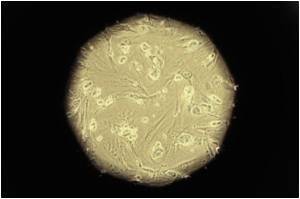Scientists are reporting success after they used human umbilical cord blood cells (HUCB) to treat cultured rat brain cells deprived of oxygen

"However, the cord blood cells also had an impact on cytokines - small proteins secreted by cells of the immune system - and also on glial cells that carry signals between cells," said University of South Florida (USF) professor Alison Willing.
"HUCBs are composed of different types of immune cells and have the ability to secrete both pro- and anti-inflammatory cytokines. This suggests that the cells may promote recovery following stroke by regulating inflammatory responses and providing support for neural cells, such as astrocytes," Willing said.
"The effects of cord blood cells on astrocytes are not clear and more research is needed to clarify the issue," she concluded.
Their study was published in the August 2010 issue of Stem Cell Review and Reports.
Source-ANI














